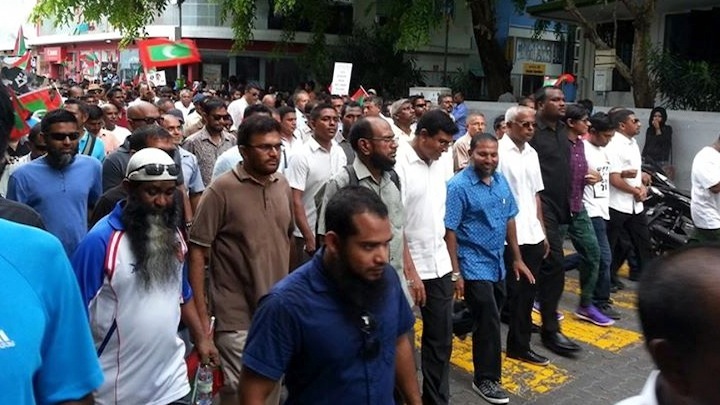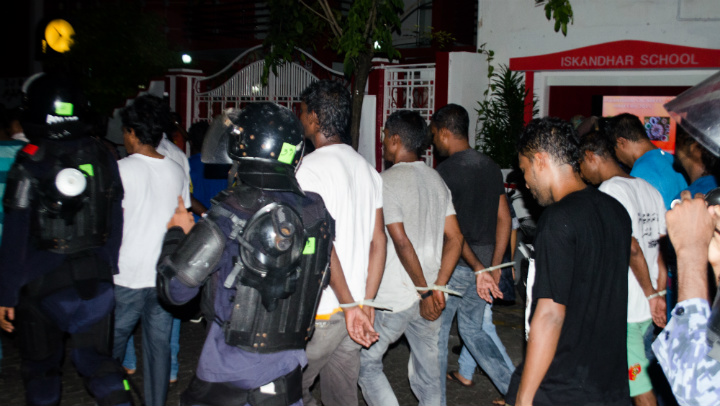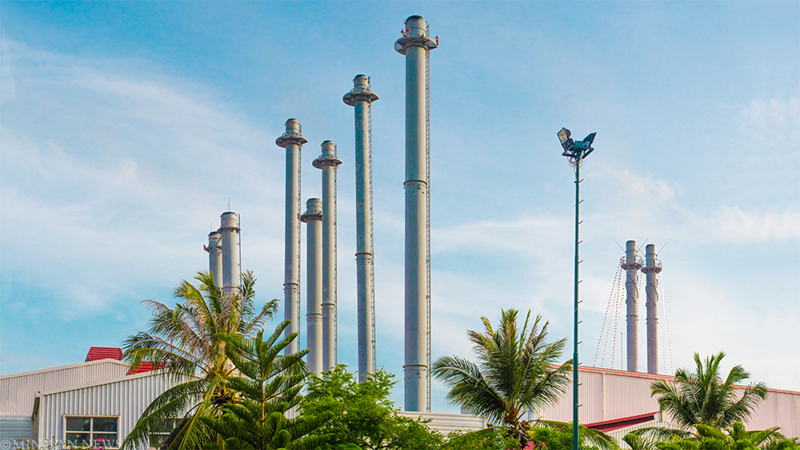Adhaalath Party (AP) president Sheikh Imran Abdulla, Jumhooree Party (JP) deputy leader Ameen Ibrahim and JP council member Sobah Rasheed have been charged with terrorism for allegedly inciting violence during the May Day anti-government demonstration.
The prosecutor general’s (PG) office reportedly filed the terrorism charges at the criminal court today. The charges under the 1990 Anti-Terrorism Act carry a sentence of between 10 to 15 years in prison.
Imran and Ameen were arrested after the May Day protest and accused of encouraging violence in their speeches, which police contend led to protesters assaulting police officers, damaging property, and disrupting public order and safety.
Sobah Rasheed was arrested from an opposition street protest on May 3.
Main opposition Maldivian Democratic Party (MDP) chairperson Ali Waheed was also arrested on May 1, but the PG office has reportedly not made a decision on prosecuting the former MP.
The terrorism charges follow President Abdulla Yameen’s invitation for separate talks with the three allied opposition parties. Imran, Ameen, and Ali Waheed are among the representatives of their respective parties.
Following his release last week after 26 days under police custody, Imran denied the allegations of encouraging violence. The police had also accused the opposition leaders of threatening President Yameen and other senior government officials.
More than 20,000 people took to the street on May 1 calling for the release of imprisoned former President Mohamed Nasheed and ex-defence minister Mohamed Nazim, whose arrests sparked the ongoing political crisis.
The May Day demonstration was the largest anti-government protest in over a decade.
Nasheed was charged with terrorism over the detention of a judge during his tenure and sentenced to 13 years in prison in March.
The PG office has also filed terrorism charges against the driver of a pickup that broke through police lines during the May Day demonstration.
The pickup used at the protest drove through barricades and the line of Specialist Operations police officers at high speed and was stopped near the Islamic centre.
The police said at the time that the driver was instructed and paid by protest organisers to break through the police lines.
Riot police cracked down on the May Day demonstration with tear gas, pepper spray and baton charges after protesters attempted to enter Malé’s restricted Republic Square at dusk.
Nearly 200 people were arrested and scores of protesters and some police officers were injured during violent clashes.
The opposition alliance has meanwhile called for a mass protest on June 12.
The terrorism charges against Sheikh Imran also comes after President Yameen threatened to prosecute the religious conservative party’s leader over allegations linking the president to the murder of MP Afrasheem Ali in October 2012.





